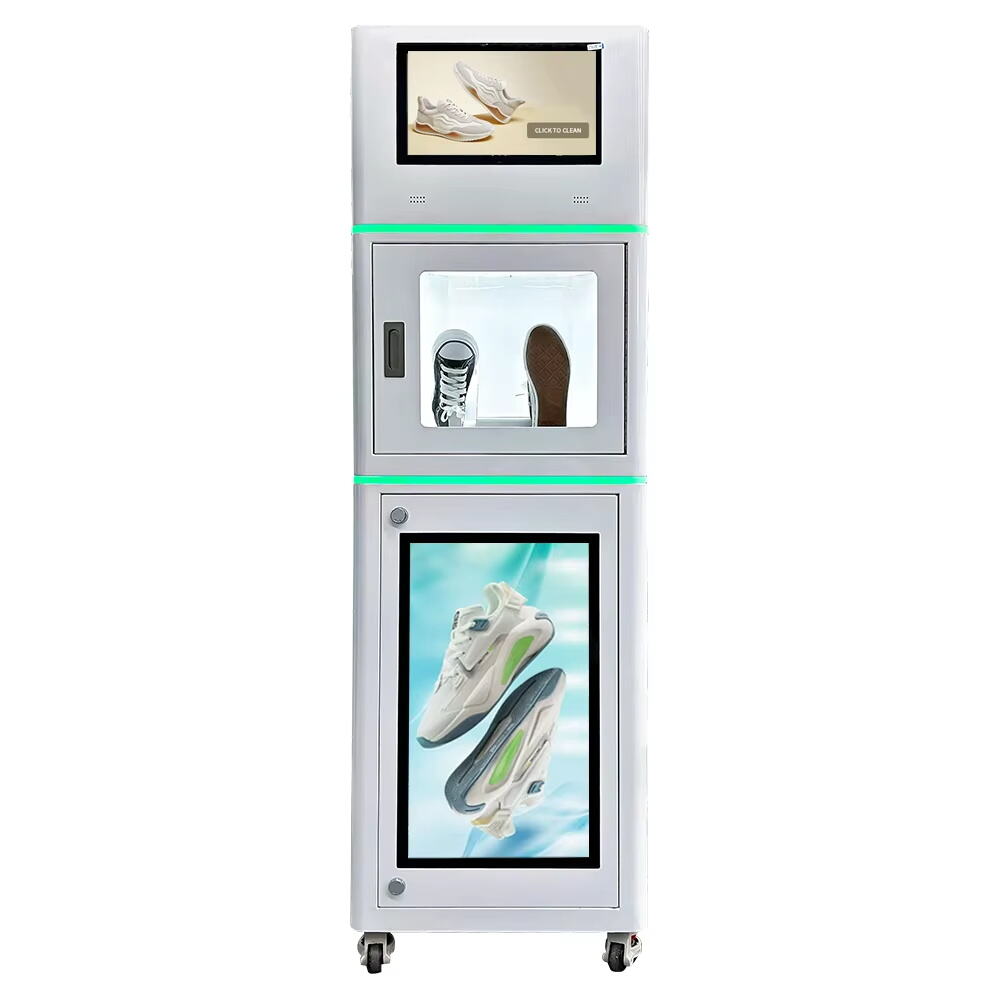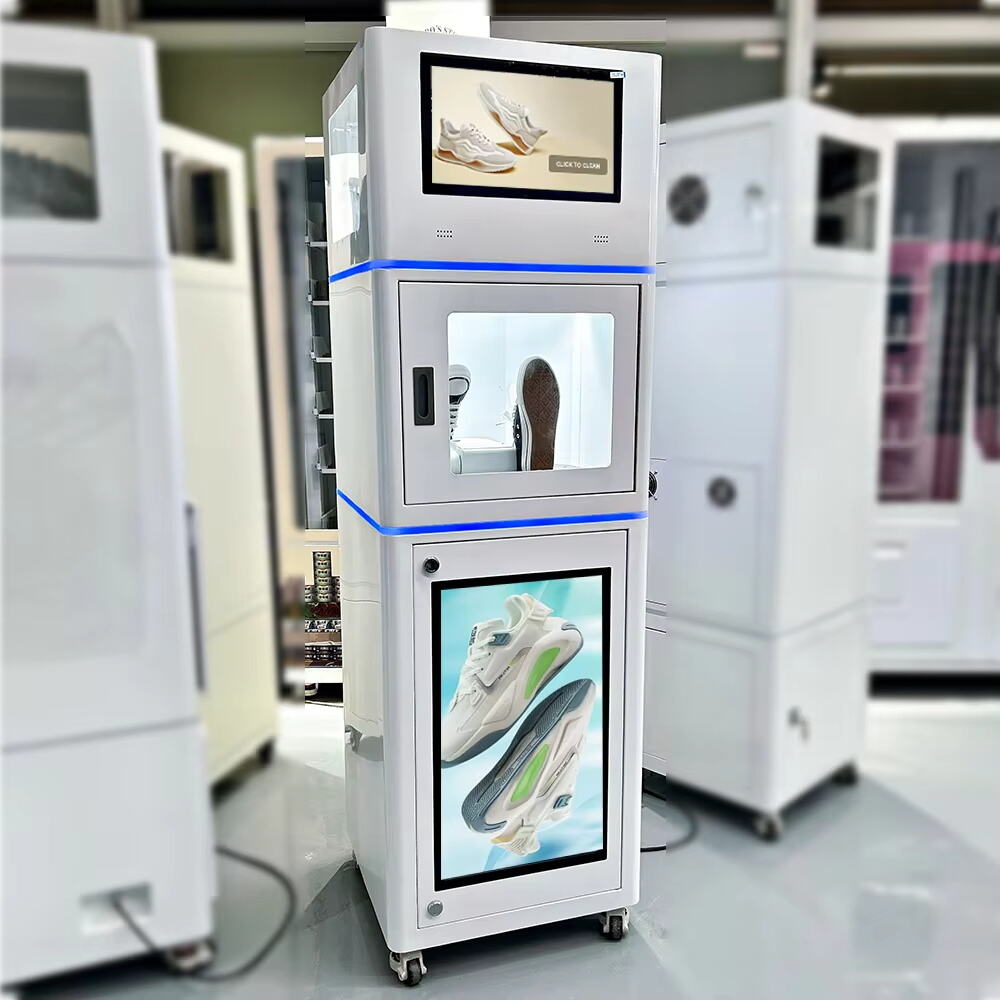Enhancing Cleanliness Across Diverse Environments
Shoe hygiene plays an important role in maintaining overall cleanliness, whether at home or in busy commercial settings. The introduction of shoe cleaning machines has brought a new level of convenience and efficiency to footwear maintenance. These machines offer more than just basic cleaning—they provide a comprehensive solution that fits various needs across multiple environments. From residential use to high-traffic commercial areas, shoe cleaning machines have evolved into multifunctional devices essential for modern sanitation efforts. This article explores the wide range of applications for shoe cleaning machines, highlighting their benefits and adaptability.
Home Applications of Shoe Cleaning Machines
Convenience and Daily Hygiene
In the home environment, shoe cleaning machines simplify the routine of maintaining footwear cleanliness. Families often deal with muddy or dusty shoes, especially after outdoor activities. Having a shoe cleaning machine at home allows quick and efficient cleaning, minimizing the dirt tracked into living spaces. The convenience of automated cleaning helps save time and effort compared to manual scrubbing. This is particularly useful in households with children or pets, where dirt accumulation can be frequent and challenging to manage.
Enhancing Indoor Cleanliness and Health
Maintaining indoor hygiene is critical, and shoes are a common vector for bringing contaminants indoors. Shoe cleaning machines at home can reduce the amount of bacteria, allergens, and other harmful particles entering the house. Many machines include drying and sterilization functions to further improve cleanliness. This is beneficial for family members with allergies or respiratory issues, as it reduces exposure to irritants. The technology embedded in shoe cleaning machines supports a healthier living environment by keeping footwear sanitized.
Commercial Uses of Shoe Cleaning Machines
Maintaining Professional Environments
In commercial settings, cleanliness is not just about appearance but also about health and safety standards. Offices, retail stores, and hospitality venues benefit from installing shoe cleaning machines at entry points. These machines provide a quick way for visitors and employees to clean their shoes before entering, preventing dirt and debris from spreading indoors. The use of shoe cleaning machines reflects a commitment to maintaining a professional and hygienic environment. Moreover, automated cleaning reduces the need for frequent floor cleaning, optimizing facility maintenance.
High-Traffic Areas and Efficiency
Commercial spaces often experience a high volume of foot traffic, making manual cleaning impractical and inefficient. Shoe cleaning machines offer a reliable solution to this challenge by enabling fast and consistent cleaning for many users. Airports, shopping malls, hospitals, and schools are ideal places for these machines. The ability to process multiple shoes quickly ensures minimal disruption while maintaining hygiene. Additionally, the machines reduce the workload for cleaning staff, allowing them to focus on other important tasks.
Versatility in Shoe Cleaning Machine Functions
Cleaning Various Types of Footwear
One key feature of shoe cleaning machines is their adaptability to different shoe materials and styles. Whether dealing with sneakers, dress shoes, boots, or sandals, these machines can adjust cleaning mechanisms accordingly. This versatility makes them suitable for diverse users, from families with different shoe types to businesses serving a broad clientele. The brushes and cleaning agents used in the machines are carefully selected to provide effective dirt removal without damaging delicate materials.
Advanced Drying and Sterilization Features
Beyond cleaning, many shoe cleaning machines include drying systems that quickly remove moisture, which can cause odor and bacterial growth. Some advanced models integrate UV sterilization or ozone treatment to eliminate pathogens and allergens. These multifunctional capabilities enhance the overall cleaning process and ensure shoes are not only visibly clean but also hygienic. Such features are particularly valuable in environments where health and safety are paramount.
Integration into Smart and Sustainable Practices
Energy and Water Efficiency
Modern shoe cleaning machines often incorporate eco-friendly technologies that reduce water and energy consumption. Water recycling systems allow multiple cleaning cycles with minimal waste, and energy-efficient motors reduce power usage. This aligns with global sustainability goals and helps businesses and homeowners reduce their environmental footprint. Using such machines contributes to responsible resource management without compromising cleaning performance.
Smart Automation and User-Friendly Interfaces
The integration of smart technology has improved the user experience with shoe cleaning machines. Sensors detect shoe size and placement, automatically adjusting cleaning cycles for optimal results. User-friendly interfaces, including touchscreens and app connectivity, make operation simple and intuitive. Some machines offer remote monitoring and maintenance alerts, ensuring consistent performance and timely servicing. This combination of automation and connectivity represents the future of footwear hygiene technology.
Impact on Health and Safety Standards
Reducing Cross-Contamination Risks
In many commercial and institutional environments, preventing cross-contamination is critical. Shoe cleaning machines help control the spread of dirt, bacteria, and viruses that shoes can carry. Hospitals, food processing plants, and laboratories particularly benefit from these machines, which support stringent sanitation protocols. By reducing the microbial load on footwear, these machines protect both employees and visitors from potential health hazards.
Supporting Infection Control Programs
The role of shoe cleaning machines in infection control extends beyond routine cleaning. Features like UV sterilization and fast drying assist in eliminating pathogens effectively. Incorporating these machines into infection control programs enhances overall hygiene and safety. Their use can reduce the incidence of hospital-acquired infections and improve compliance with health regulations. This makes shoe cleaning machines valuable tools in environments where cleanliness directly impacts wellbeing.

Choosing the Right Shoe Cleaning Machine
Assessing Capacity and Suitability
Selecting an appropriate shoe cleaning machine involves considering the expected volume of use and the environment. Residential users may prefer compact models designed for occasional cleaning, while commercial users require machines with higher capacity and durability. Understanding the specific cleaning needs and shoe types involved helps identify the best machine for the situation. Evaluating cleaning cycle times and maintenance requirements is also essential.
Prioritizing Durability and Maintenance
Durability is key, especially for commercial applications where machines operate continuously. Machines constructed from robust materials withstand wear and tear better, ensuring long service life. Ease of maintenance, including accessible parts and replaceable brushes, reduces downtime and costs. Choosing energy-efficient and low-maintenance models enhances long-term value and operational reliability. These factors contribute to the overall return on investment.
Future Prospects for Shoe Cleaning Machines
Expansion of Customization and Integration
The future of shoe cleaning machines will likely involve greater customization, allowing users to tailor cleaning programs to specific needs. Enhanced interfaces and connectivity options will support seamless integration with smart building systems. This could include access control linked to mandatory shoe cleaning or automated hygiene monitoring. Such developments will make shoe cleaning machines even more versatile and efficient.
Emphasis on Sustainability and Innovation
As environmental concerns grow, manufacturers will focus more on sustainable designs and innovative cleaning technologies. Waterless cleaning methods, biodegradable cleaning agents, and energy harvesting technologies may become standard features. These innovations will ensure shoe cleaning machines remain relevant and effective in addressing evolving hygiene challenges.
Frequently Asked Questions
What types of footwear are compatible with shoe cleaning machines?
Shoe cleaning machines are compatible with a wide range of footwear, including casual shoes, athletic sneakers, boots, and sandals. Their adjustable cleaning mechanisms ensure safe and effective cleaning across different materials and styles.
How do shoe cleaning machines contribute to environmental sustainability?
Many shoe cleaning machines feature water recycling and energy-saving technologies. They also support the use of eco-friendly detergents, reducing water and energy consumption while minimizing environmental impact.
What maintenance is required to keep shoe cleaning machines operational?
Regular cleaning of brushes, water tank refills, and mechanical inspections are necessary. Following manufacturer guidelines for maintenance frequency ensures optimal performance and extends machine lifespan.
Can shoe cleaning machines help prevent the spread of infections?
Yes, especially those equipped with sterilization features such as UV light or ozone treatment. These functions reduce microbial presence on footwear, supporting infection control in sensitive environments.
Table of Contents
- Enhancing Cleanliness Across Diverse Environments
- Home Applications of Shoe Cleaning Machines
- Commercial Uses of Shoe Cleaning Machines
- Versatility in Shoe Cleaning Machine Functions
- Integration into Smart and Sustainable Practices
- Impact on Health and Safety Standards
- Choosing the Right Shoe Cleaning Machine
- Future Prospects for Shoe Cleaning Machines
- Frequently Asked Questions
